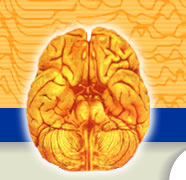The Cognitive & Behavioral Effects of the Transcendental Meditation Program & Maharishi Vedic Medicine
on
Children with Attention Deficit Hyperactivity Disorder (ADHD)
Alarik T. Arenander, PhD, Director, Brain Research Institute
SPECIFIC AIMS
There is a developmental problem in many schoolchildren. More than half the children referred to professionals for evaluation and treatment of behavior problems are diagnosed as hyperactive (Whalen, 1983). The percentage of the school-age population diagnosed as having Attention Deficit-Hyperactive Disorder (ADHD, ranges from 3% to as high as 15%, with males represented three to ten times more than females (Barkley, 1981; Bosco & Robin, 1980).
Although the cause of ADHD symptoms is not known, current consensus points to dysfunction in brain development, due largely to genetic differences, associated with developmental delays of inhibition and self-regulation (Barkley, 1997; Castellanos, 1999; Faraone & Biederman, 1998; Faraone & Biederman 1999; Hynd et al., 1991; Lensch, 2000; Sergeant et al., 1999; Quay 1997;). The disorder arises early in childhood and persists in over half of the cases, into adulthood, even with pharmacological intervention. Because of poor social skills and academic performance, many of these children move down a default path of antisocial behavior, substance abuse, unemployment, and conduct disorders.
Considerable progress has been made in understanding the neurological basis of this developmental disorder. Most evidence and theoretical considerations indicate that the prefrontal cortex and its executive functions play a key role in this disorder. At the core of ADHD is the deficit in the executive function referred to as response inhibition (Barkley, 1997; Pennington & Ozonoff, 1996, Quay, 1997). Secondarily, deficits in other executive functions appear including fundamental cognitive processes such working memory and sense of self, self-regulation of emotion and motivation, and self-directed play and goal-directed behavior. These cognitive deficits then cascade into areas of social intelligence and academic performance (Barkley, 1997; Barkley, 2000). Brain imaging studies and brain mapping studies support the concept of central dysfunction in the prefrontal cortex, probably secondary to developmental abnormalities in brainstem dopamine and norepinehrine control of forebrain function (Faraone & Biederman, 1999; Castellanos, 1999). Use of psychostimulant medication in children is helpful in reducing symptoms, but has questionable beneficial long-term effects and has significant negative side effects.
The purpose of this research project is to investigate the effects of an alternative, non-drug, integrated program on children with ADHD. The Maharishi Vedic Medicine (MVM) program consists, in part, of Maharishi’s Transcendental Meditation® (TM®) program and recommendations for herbal supplements, diet, and daily routine. Maharishi Vedic Medicine includes the traditional knowledge and ancient technologies of Ayur-Ved which have been revived, reorganized, and restored into a comprehensive and holistic natural health care system by Maharishi Mahesh Yogi with the collaboration of leading Indian Ayurvedic physicians (Sharma & Alexander, 1996a, 1996b; Sharma and Clark, 1998). Ayur-Ved is currently practiced by over 300,000 doctors throughout the world and has been recognized by the World Health Organization for its continuing contributions to health.
The Transcendental Meditation technique has been documented by scientific research to be the most effective approach to eliminate stress, reduce or reverse chronic illness (generally genetically predisposed conditions), and to develop higher levels of cognitive and emotional functioning (Orme-Johnson & Walton, 1998; Roth, 1998). The extensive benefits derived from the TM technique can be understood in terms of creating balance and integration of brain, in particular, the prefrontal cortex and its executive functions (Arenander 1996; Arenander 2000, in preparation).
The primary focus of this study will be on evaluating the effect of Maharishi Vedic Medicine in reducing a triad of symptoms commonly associated with ADHD—poor sustained attention, impulsivity, and hyperactivity. Since these symptoms tend to have a significant negative impact on school performance, the effectiveness of MVM in improving basic academic skills will be studied. The results of this research will yield much-needed information that will help direct future research on the nonpharmalogical treatment of children suffering from ADHD. |
